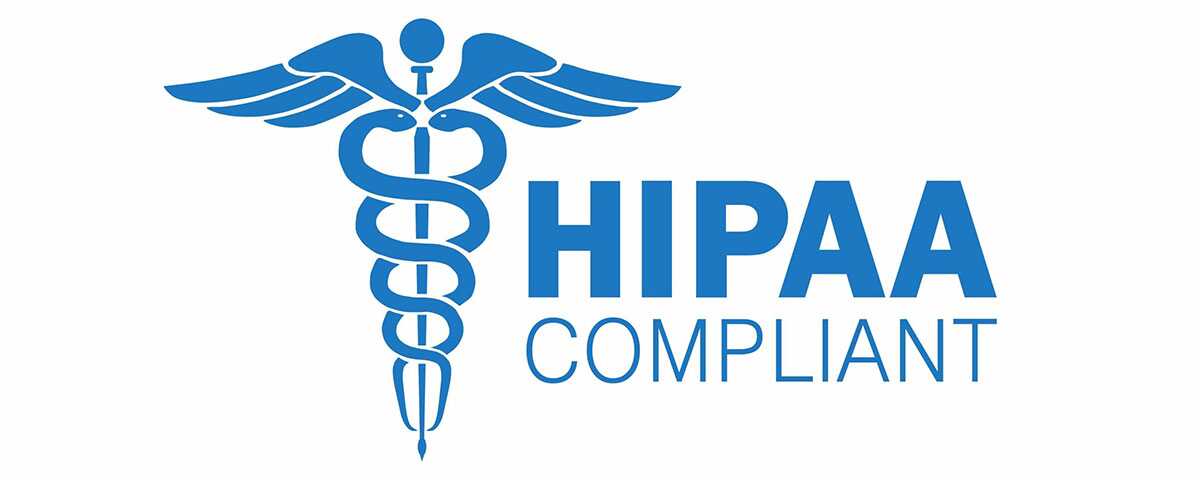HIPAA Compliance: What Is It & What Is a Key to Success for Staying Compliant?

HIPAA (Health Insurance Portability and Accountability Act) is United States legislation that was enacted in 1996 to create protection standards for the medical and health information of patients. The rule pertains to all protected medical and health information, including paper and electronic, and covers all medical organizations and entities including hospitals, doctor’s offices, health insurers, and providers.
The electronic forms of medical and health information which pertain to HIPAA are known as ePHI (electronic personal health information), and all medical and healthcare entities must abide by HIPAA’s Security Rule and guidelines when handling ePHI. Whether the ePHI is being stored, created, or transmitted, it is the responsibility of the handler to ensure the confidentiality, integrity, and availability of all ePHI.
Despite the fact that HIPAA was legislated in 1996, its notion to protect all ePHI remains highly relevant today as the adverse effects of data breaches have devastated medical and healthcare organizations over the last decade.
In 2019, 15% of all data breaches involved healthcare entities, and the ePHI acquired in many of these breaches proved to cost these organizations an average of $429 per record in costs. These costs do not include the legal and social implications of a breach of ePHI, which can be devastating in and of themselves due to the sensitive nature of such information.
ePHI Data Breaches in the News
The American Medical Collection Agency (AMCA) was hacked for 8 months between August of 2018 and March of 2019, resulting in a breach that has affected over 25 million medical patients with the number rising as the investigation continues. Considering the high costs associated with a data breach involving ePHI, it is no surprise that the AMCA has filed for bankruptcy.
How to Protect ePHI to Become HIPAA Compliant
Since entities such as hospitals, doctor’s offices, and healthcare providers can be diverse and unique, the Security Rule of HIPAA has been designed to be flexible so that these different entities can implement policies and security measures that are appropriate to their size, capabilities, and level of risk. This means that a company as large as the AMCA will be held to different standards than that of a smaller operation such as a family doctor’s office.
To assist in the planning and implementation of security measures to reach compliance, the HIPAA Security Rule specifies a series of administrative, physical and technical security safeguards for covered entities to implement in order to assure and maintain the confidentiality, integrity, and availability of all ePHI.
Administrative Safeguards
This safeguard focuses on the policies, procedures, and maintenance of administrative and internal security measures that protect the ePHI. Examples of administrative safeguards are:
Policies and Procedures:
These safeguards typically focus on how employees can access and handle ePHI and should cover the nuances within the organization that could leave ePHI vulnerable to disgruntled or incompetent employees.
An example of this would be an internal process that ensures that fired employees will have no further access to ePHI upon their release from the company.
HIPAA-Compliant Software
Ensuring data security is paramount when sharing information, especially on third-party platforms. This is particularly crucial for sensitive medical data, where regulations like HIPAA (Health Insurance Portability and Accountability Act) come into play.
Even something as seemingly innocent as appointment scheduling software can cause a HIPAA breach if patient data is transferred to the program and made accessible to unauthorized parties.
HIPAA mandates strict safeguards to protect patient privacy. Breaches involving medical information can have devastating consequences, from identity theft and fraudulent insurance claims to emotional distress. By prioritizing data security on third-party platforms, we can minimize these risks and ensure patient trust in the healthcare system.
Training Programs
Training employees to become HIPAA compliant is essential to securing ePHI laterally across the organization. All employees responsible for handling ePHI should be educated on the risks and consequences of a data breach that involves ePHI.
One way to train employees to prevent an attack would be to teach them about the ways that these data breaches are executed. One of the most common ways that data breaches are executed remains to be through email phishing scams that prey on untrained employees to expose confidential information of the company such as passwords and login information.
Auditing and Monitoring
Continuing to audit and monitor the policies and procedures put in place is important to ensure that the risk potential is minimalized, and any new or unidentified risks will be discovered in order to further secure the operation.
One of the most important things to audit and monitor is the network on which ePHI is stored and transmitted. Keeping network software up-to-date will be fundamental to preventing attacks from cybercriminals that specialize in exploiting vulnerable networks.
Physical Safeguard
HIPAA defines the physical safeguards of the Security Rule as “physical measures, policies, and procedures to protect a covered entity’s electronic information systems and related buildings and equipment, from natural and environmental hazards, and unauthorized intrusion.” Essentially, physical safeguards protect the leakage of ePHI by securing physical properties that contain medical and healthcare information of patients.
There are 4 standards included in the physical safeguard section of the Security Rule.
- Facility Access Controls
- This includes policies, procedures, technology and equipment that limit the access of ePHI to only authorized employees.
- Employee access cards and 2-factor authentication are examples of facility access control standards.
- This includes policies, procedures, technology and equipment that limit the access of ePHI to only authorized employees.
- Workstation Use
- Workstation use refers to the ways in which employees use their equipment and resources to handle ePHI. Since ePHI is often stored on local networks and employee computers, a workstation use policy should specify the proper functions that should be performed on these machines to protect ePHI.
- An example of secure workstation usage would be preventing employees from accessing personal emails to reduce the risks of an internal leak. When employees are able to access personal emails at work, there is often no way to prevent the illicit transfer of ePHI via email.
- Workstation use refers to the ways in which employees use their equipment and resources to handle ePHI. Since ePHI is often stored on local networks and employee computers, a workstation use policy should specify the proper functions that should be performed on these machines to protect ePHI.
- Workstation Security
- This involves securing workstations from the access of unauthorized users. If an employee should happen to lose a laptop that contains ePHI, security measures such as encryption should be implemented in order to secure the device.
- This involves securing workstations from the access of unauthorized users. If an employee should happen to lose a laptop that contains ePHI, security measures such as encryption should be implemented in order to secure the device.
- Device and Media Controls
- This standard governs how hardware and other forms of technology that contain ePHI can enter or exit the facility. These controls must include the disposal, reuse, accountability, and data backup and storage of all devices that contain ePHI.
- For example, ePHI data should be backed up and stored on a secured network or cloud server.
- This standard governs how hardware and other forms of technology that contain ePHI can enter or exit the facility. These controls must include the disposal, reuse, accountability, and data backup and storage of all devices that contain ePHI.
Technical Safeguards
The HIPAA Security Rule states that technical safeguards include “the technology and the policy and procedures for its use that protect ePHI and control access to it.” Technical safeguards define the standards of which how the technology used and the systems implemented should perform in order to secure ePHI.
Since the Security Rule recognizes the diversity of covered entities, a family doctor’s office may not need the same system of malware detection software as that of a larger healthcare corporation such as the AMCA. The complexity of the operation will always be considered when analyzing the security measures implemented.
Conclusion
With the prominence of data breaches that involve ePHI making headlines practically every other week, and considering the costs associated with these attacks, it is no surprise that healthcare entities are strengthening their security measures to prevent themselves from being the next victim.
Whether it’s a small family doctor’s office or a large company such as the American Medical Collection Agency, all organizations that handle ePHI are responsible under HIPAA to protect the electronic medical and health information of their patients from exploitation.


